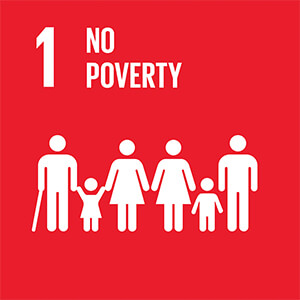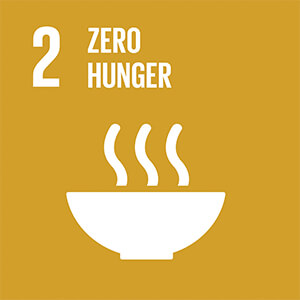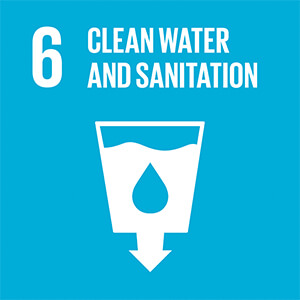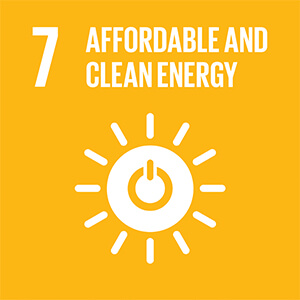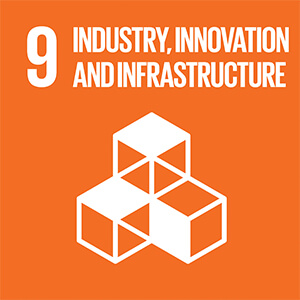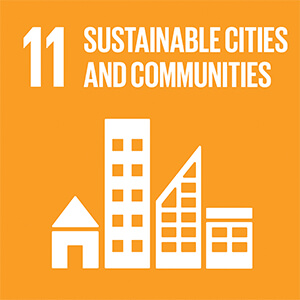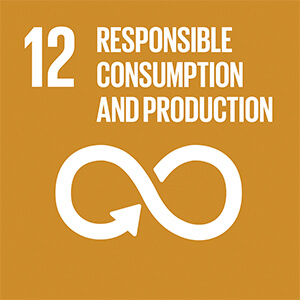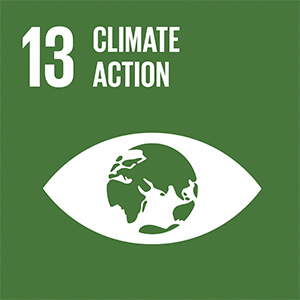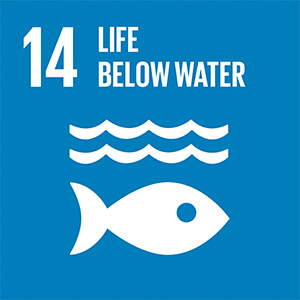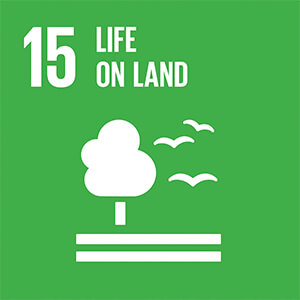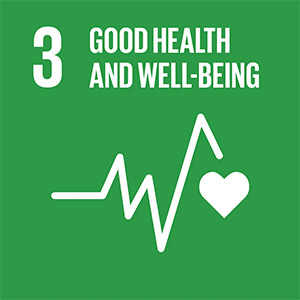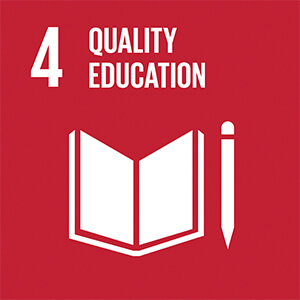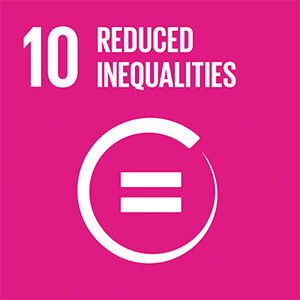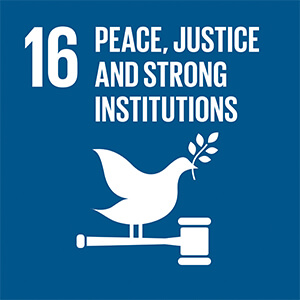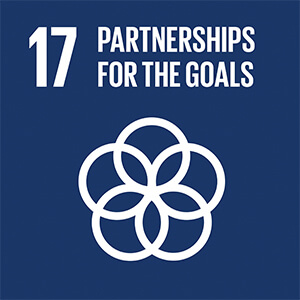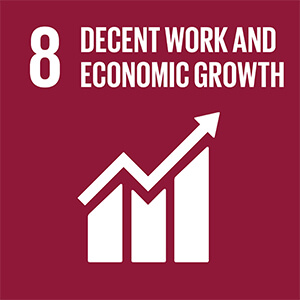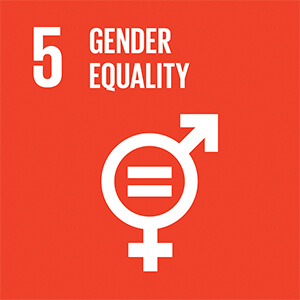Leadership Goal
Objective
Drive accountability and performance along our value chain
Relevant SDGs
Overview
Landcom’s Accountable & Collaborative Places pillar is focused on a leadership goal to ‘drive accountability and performance along our value chain’. This leadership goal was developed to reflect Landcom’s commitment to robust governance collaboration within our organisation and supply chain.
Accountability means creating a system with a level playing field in which decisions are made for the betterment and benefit of all stakeholders. Performance means seeking ever greater improvements in efficiency and outcomes. Our value chain refers to all organisations that we deal with in operations. By championing better ways to approach business we seek to lead the industry in trust, transparency, governance and efficient outcomes.
Landcom addresses accountability and collaboration through the following focus areas:
- Accountability
- Human Rights
Each of these focus areas includes a suite of priorities or actions to measure our success. While this pillar includes individual priorities for achievement, it also has a broad governance reach across Landcom’s entire Sustainable Places Strategy.
Case Study
Developing a Reconciliation Action Plan
In FY21 we engaged Murawin Indigenous Consultants to guide Landcom through the process of creating a Reconciliation Action Plan. We kickstarted the process with an all-staff presentation from Murawin during 2020 NAIDOC Week, which focused on the positive impact collaboration can drive in aligning indigenous perspectives with built environment outcomes.
READ MOREManagement Approach
Landcom is committed to supporting international agreements, protocols and targets to ensure our planet and communities thrive into the future.
Urban development and the property sector make a material contribution to global emissions, the quality of life experienced by citizens and the resilience of our built and natural environments.
Therefore, Landcom believes it is critical to align with, and report our contribution towards the United Nations Global Compact, Sustainable Development Goals, Resilient Sydney Strategic Directions and COP21 Paris Agreement. We also voluntarily report against the Task Force on Climate-related Financial Disclosures, and we are a reporting entity under the Commonwealth Modern Slavery Act 2018.
|
|
||
|
United Nations Global Compact (UNGC) |
In February 2019 Landcom became a Participant of the United Nations Global Compact. We report our Communication on Progress annually. |
||
|
Sustainable Development Goals |
Our Sustainable Places Strategy was directly informed by the Sustainable Development Goals (SDGs). We report our contribution to the SDGs annually. See Appendix D: Sustainable Development Goals Alignment. |
||
|
Paris Agreement COP21 |
Our environmental leadership goal is to ‘enable carbon neutral outcomes at communities by 2028’. See Urban Heat Island Reduction and Greenhouse Gas Emissions Reduction. |
||
|
GRESB |
Landcom voluntarily participates in the GRESB Real Estate Assessment, which evaluates the environmental, social and governance (ESG) performance of real assets. See GRESB. |
||
|
Climate Active Carbon Neutral Certification |
Landcom is a Climate Active certified Carbon Neutral Organisation. See Case Study: Carbon Neutral Organisation certification |
||
|
Task Force on Climate-Related Financial Disclosures |
Landcom discloses its approach to managing climate change risks in accordance with the Task Force on Climate-related Financial Disclosures. See APPENDIX B: Task Force for Climate-related Financial Disclosures Disclosures. |
||
|
NSW Government Resource Efficiency Policy |
We report our overall sustainability performance against the NSW Government Resource Efficiency Policy (GREP), which guides our approach to energy, water and waste efficiency in our corporate operations. See NSW Government Resource Efficiency Policy (GREP). |
||
|
Human Rights |
Landcom operates entirely within NSW, and as such benefits from high standards of governance and legislation Australia adopts regarding human rights. We are a Participant to the United Nations Global Compact (UNGC) and we support the ten principles of the Global Compact on human rights, labour, environment and anti-corruption. Landcom also has a public Human Rights statement, see below. | ||
|
Commonwealth Modern Slavery Act 2018 |
Landcom is a reporting entity under the Act, and provides our Board approved public statement within this report. See APPENDIX C: Modern Slavery Statement |
Landcom’s public Human Rights Statement affirms our commitment to human rights and acting to ensure our operations uphold and protect the rights of every person in our value chain.
Our approach to Human Rights is informed by international best practice initiatives, including the United Nations Guiding Principles, United Nations Global Compact to which Landcom is a signatory, and the Commonwealth Modern Slavery Act 2018 ‑ Guidance for Reporting Entities.
We believe that human rights is of growing importance to our staff and teams, stakeholders, suppliers and sub-contractors, industry peers and civil society groups, as well as our customers and communities. The business case and moral motivation for upholding human rights across our operations and supply chain are clear. Our key focus areas for human rights include:
- demonstrating global standards of liveability, resilience, inclusion and affordability across our operations and communities
- encouraging diversity and inclusion in the workplace, via our Diversity & Inclusion Action Plan
- respecting and acknowledging First Nations by considering the heritage and history of land in and around our developments, and collaborating with indigenous communities for meaningful outcomes
- addressing modern slavery through our supply chain, and in accordance with the Commonwealth Modern Slavery Act 2018.
As a broader part of Landcom’s commitment, in 2019 we became the first Government Land Organisation to be accepted as a signatory to the Ten Principles of the United Nations Global Compact (UNGC). Our annual Communications on Progress is published by the UNGC each year27. Landcom continues to remain a committed signatory, focused on advancing our contribution to fundamental responsibilities in the areas of human rights, labour, environment and anti‑corruption.
Landcom also leverages its internal policies and frameworks to guide our approach, including our Diversity & Inclusion Policy and Action Plan, Employee Wellness Program, and Modern Slavery Management Plan.
From FY22 we will update our Management Approach to include our Reconciliation Action Plan, which we started to develop during the reporting year. For Landcom’s progress to date see Case Study: Developing a Reconciliation Action Plan.
_________________________
27 Landcom Communications on Progress for 2020 here.
Performance Results
See below our performance results for each of the reporting areas within our Accountable & Collaborative Places Pillar.
Accountability
Performance Overviews
Landcom reports our alignment and contribution to achieving the Sustainable Development Goals (SDGs).
Landcom’s Sustainable Places Strategy is aligned to all of the SDGs. Each year we will continue to track our progress against meeting the SDGs and their respective targets relevant to Landcom and our operations.
| Sustainable Places Strategy Pillar SDGs |
Sustainable Development Goals |
|---|---|
| Climate Resilient Places |
|
| Healthy & Inclusive Places |
|
| Productive Places |
|
| Accountable & Collaborative Places |
|
To see our full alignment against the SDGs, and our targets and actions in FY21 to address them, refer to APPENDIX D: Sustainable Development Goals Alignment.
In FY21 Landcom participated in the GRESB Real Estate Assessment. This was our fifth year participating in GRESB. Landcom achieved a score of 92/100, and maintained our Green Star rating and 5 Star entity status. Overall, Landcom ranked within the top 11% of global residential developer participants, and exceeds the GRESB and Peer Group average performance. The following table summarises our results and benchmarking.

Throughout the reporting period Landcom continued to voluntarily adopt the NSW Government Resource Efficiency Policy (GREP). The GREP helps the NSW Government to set an example in addressing the challenge of rising resource costs, and reducing impacts on our economy, environment and community.
The GREP guides Landcom’s approach to energy, water and waste efficiency in our corporate operations, and helps us align with the State Government’s sustainability goals28. Key activities in the reporting year29 related to the GREP include:
- a total of 2.9 tCO2-e Scope 1 emissions were recorded for the reporting year. Sources were sales offices (gas) and Landcom’s fleet vehicles (fuel combustion). Landcom had no biogenic emissions
- Landcom had no Scope 2 emissions, as the 136,988kWh of electricity used to power our office was 100% Green Power
- based on the total of 158.8 full time equivalent staff members (FTE), Landcom’s energy intensity is 863kWh/FTE
- we maintained our 6 Star NABERS Energy Rating for our Parramatta Office.
During the reporting period Landcom was certified as a carbon neutral organisation under the Climate Active Carbon Neutral Standard. The Climate Active Carbon Neutral Standard (the Standard) is Australia’s government managed offset scheme for certifying organisations, products and services, and events.
Historically, Landcom has not set a baseline year for our Scope 1 or Scope 2 emissions as we have consistently purchased green power or offset all our emissions within operational control, however as part of our Climate Active carbon neutral certification we were required to do so – as such our baseline is calendar year 2019.
We adopt the National Greenhouse and Energy Reporting (NGER) Scheme global warming potential account factors. We use the tool CCAP Integrated to capture and synthesise our data, which also follows the NGER Scheme protocols.
_________________________
28 As outlined in NSW 2021: A plan to Make NSW Number One, which aims to drive resource efficiency by NSW Government agencies in three main areas — energy, water and waste — and also reduce harmful air emissions from government operations.
29 In FY21 we have shifted our GREP reporting to align with our Climate Active certifications, and as such the data presented represents calendar year 2020. This approach will be adopted moving forward.
Human Rights
Performance Overviews
The Federal Modern Slavery Act commenced on 1 January 2019. The Act requires entities with an annual revenue of $100 million or more based or operating in Australia to prepare annual statements on potential modern slavery risks in their operations and supply chains and disclose the steps they have taken in addressing those risks. As of FY20, Landcom is a reporting entity under this Act. Landcom’s Modern Slavery Statement is presented at APPENDIX C: Modern Slavery Statement.
In FY20 Landcom adopted a Modern Slavery Management Plan to guide the way our organisation identifies, mitigates and remediates the risks of modern slavery within our operations and supply chain.
During the reporting period modern slavery training was launched to all staff, delivered in partnership with the Supply Chain Sustainability School.
Landcom also continued its membership of the Property Council Modern Slavery Working Group throughout the reporting period. The group is represented by risk, sustainability and procurement experts. In 2019 the cohort formed a consortium to design and deliver the ‘Supplier Platform’.
The Platform provides a consistent approach to engagement on modern slavery across the industry’s shared supply chain, and leverages the consortium’s collective influence to mitigate or remediate instances of modern slavery. Suppliers complete a single questionnaire that is accessible through an online dashboard to the consortium members for whom they work, or wish to work. The Platform also provides capacity building links and resources to suppliers, and is intended to encourage and track continuous improvement, enabling consortium members to collect and evaluate data, or monitor skills gaps and supply chain advances.
In FY21 Landcom adopted a supplier pre-qualification requirement for contracts with a value over $150,0000, and all new Landcom Panel appointees, to complete the Platform questionnaire. During the year we renewed our Civil and Landscape Works panels, and tested our new pre-qualification requirements. We’re pleased to report that all new panel members (31) and suppliers with new contracts issued30 over $150,000 completed the modern slavery questionnaire, providing Landcom a deeper understanding of the inherent risks within our immediate supply chain.
The questionnaire results confirmed the majority of participating suppliers included the following risk profile attributes, making their operations or supply chain susceptible to modern slavery:
- very high proportion of sub-contractors
- high volume of labour hire
- little or no oversight of suppliers’ sub-contractors or third-parties
- products and materials sourced from overseas, with little or no oversight of their production.
These findings are consistent with where the property and construction industry is likely to encounter modern slavery. Low skilled, manual, low-waged work is an area where workers are more likely to be subjected to forced labour, and where the risk of harm to people may increase. These workers may be poorly educated, lack decent work options and be more likely to be migrants from high-risk countries. This is relevant to both operations in Australia, and the overseas supply chain.
In response to this, Landcom has updated our existing integrated management system, typically used for work, health and safety or environmental notifications. We have leveraged this to include a modern slavery option, which automatically alerts key Landcom staff when an incident is lodged.
As the property and construction industry is also characterised by long and complex supply chains, stretching across many countries, we have also adopted new contract clauses for all works or engagements requiring our principle contractors or consultants to notify Landcom of any suspected or confirmed incidents of modern slavery, and to collaborate with us in any investigation or remedy.
We’re committed to driving accountability and performance along our supply chain. This means proactively engaging with our suppliers, particularly those we partner with to deliver our projects. As part of our management approach Landcom is a member of the Australian Supply Chain Sustainability School.
Launched in Australia in 2015, the School works to develop the sustainability skills and knowledge of those working in complex property and construction supply chains. Through self-assessment tools and free resources, it helps organisations of all sizes address issues such as modern slavery, sustainable procurement and materials innovation.
In FY22 Landcom will continue to deliver against its Modern Slavery Management Plan, including the development of a remediation approach.
_________________________
30 Commenced from mid-March 2021.
Landcom has continued to promote diversity and inclusions (D&I) across our business throughout FY21.
Our D&I Policy outlines our commitment to providing a workplace culture that embraces equity, diversity and inclusion at all levels of our organisation enabling staff to thrive and do their best work.
Throughout FY21 we continued to monitor the progress of Landcom’s D&I Action Plan, which focuses on the following key goals:
- create an environment that values diversity & inclusion
- increase attraction, retention, and development of staff from diverse backgrounds, initially prioritising women, Aboriginal and Torres Strait Islanders, culturally and linguistically diverse people, people with disability, generational diversity and LGBTQIA+
- reduce bias and embed diverse and inclusive practices into how we work.
As part of the Action Plan, and to help enable the above goals, Landcom has adopted a suite of D&I measures and metrics, benchmarked against several Australian datasets. Our FY21 results are presented in Landcom’s Annual Report.
Landcom recognises that managing work, relationships, caring responsibilities, finances and other life needs can be challenging at times for us all. To support our staff, in FY19 Landcom introduced LifeStreet – a new Employee Assistance Program focused on wellbeing and an individuals’ life as a whole.
Accessible to all staff, LifeStreet offers usual assistance services to employees and immediate family members, and has resources and tools for staff to use in their lives more broadly.
Digitally based, users can access their own LifeStreet profile via a secure login, and use self-assessment tools to help direct them to the appropriate resources on their platform. Topics span health and wellness, family and relationships, work and career, psychological and emotional wellbeing, carers needs, financial management and planning and purpose and contribution. Users can also be connected to coaches or medical professionals – such as sleep psychologists if that is an area of personal wellbeing improvement a user may need support with.
In FY21 Landcom responded to the impacts of COVID-19 by encouraging higher engagement with LifeStreet, and making health and wellbeing classes available to staff online.
Further detail of our FY21 activities are presented in our Annual Report.
Our Sustainable Places Strategy
Our Sustainable Places Strategy with four Leadership Goals guides the way we deliver new communities. Our FY21 performance for each part of our strategy is accessible below.
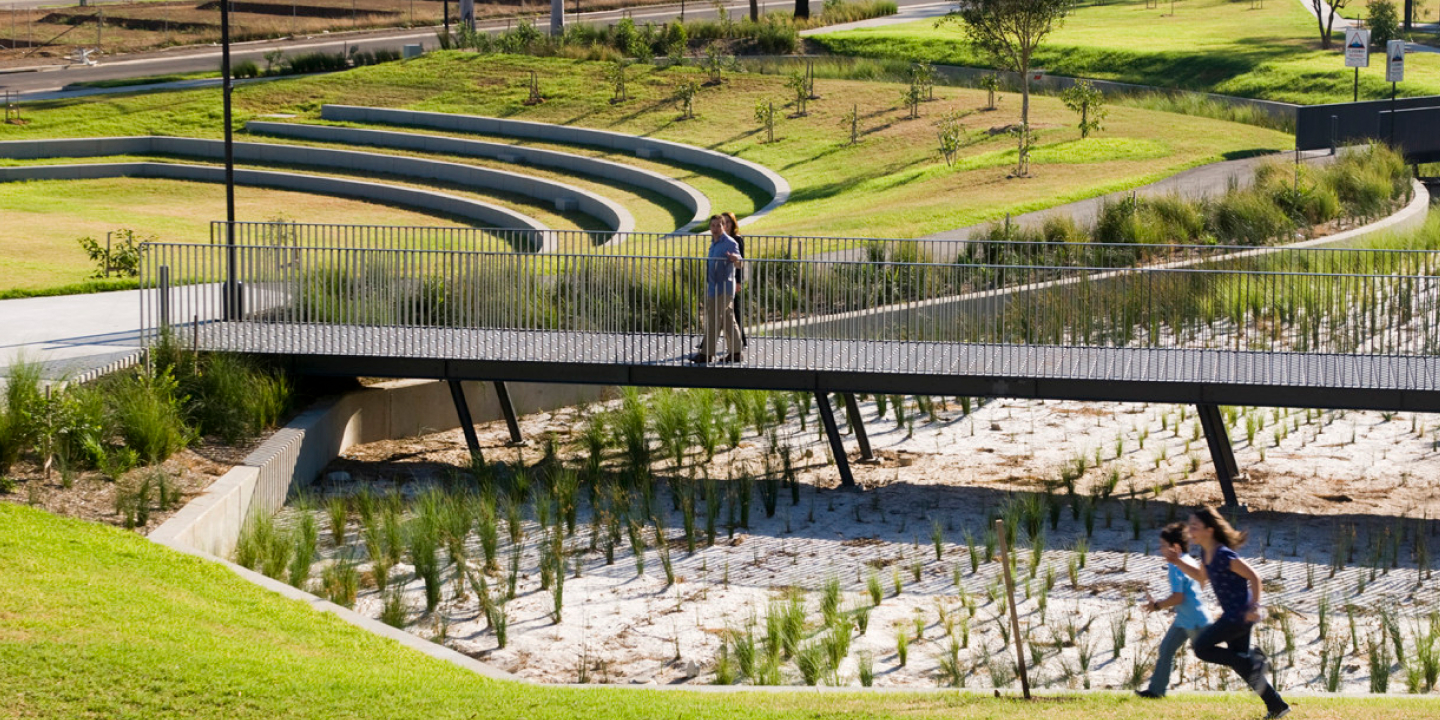
Climate Resilient Places
Enabling carbon neutral, water positive, zero waste and net positive ecological outcomes by 2028.

Healthy &
Inclusive Places
Enhancing Landcom’s international status for delivering world class liveable places, founded on equity, affordability and inclusion by 2036.
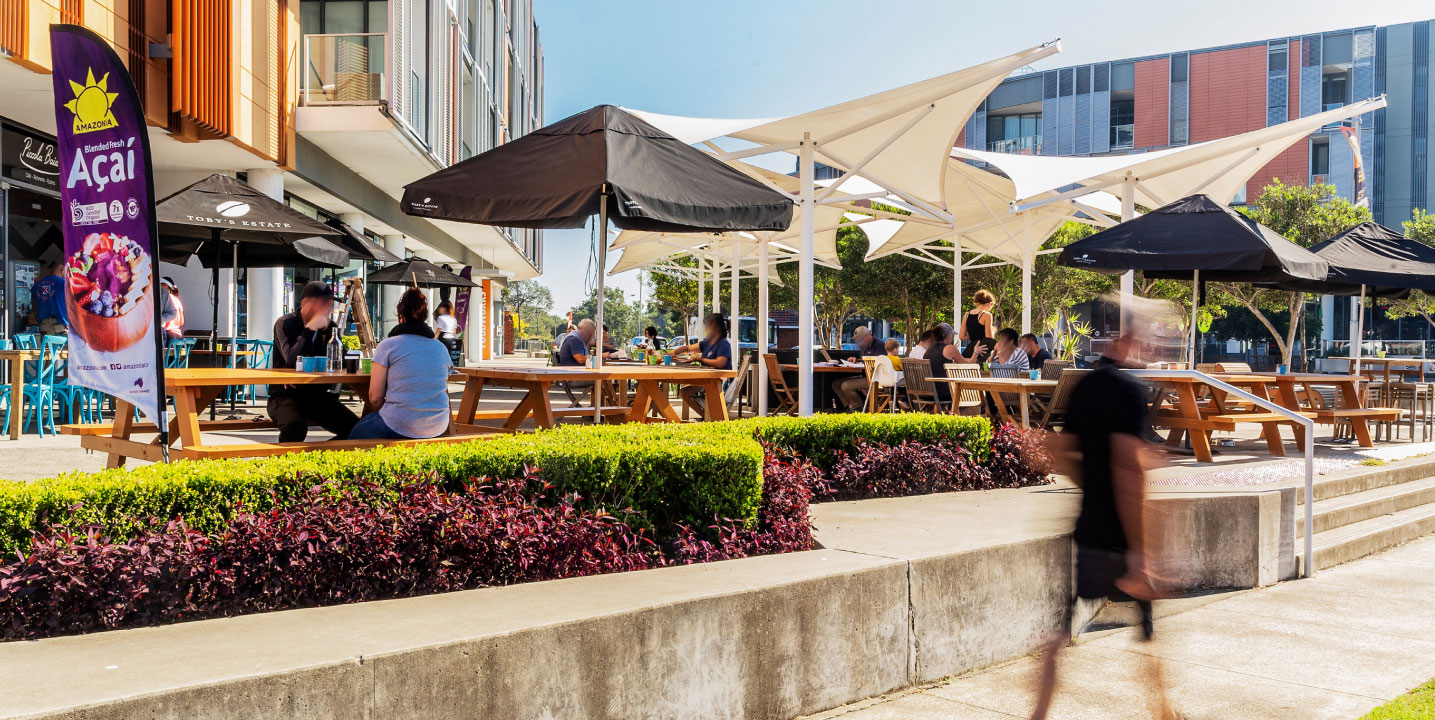
Productive
Places
Contributing to the global innovation economy by enabling over 30,000 new jobs by 2036.
